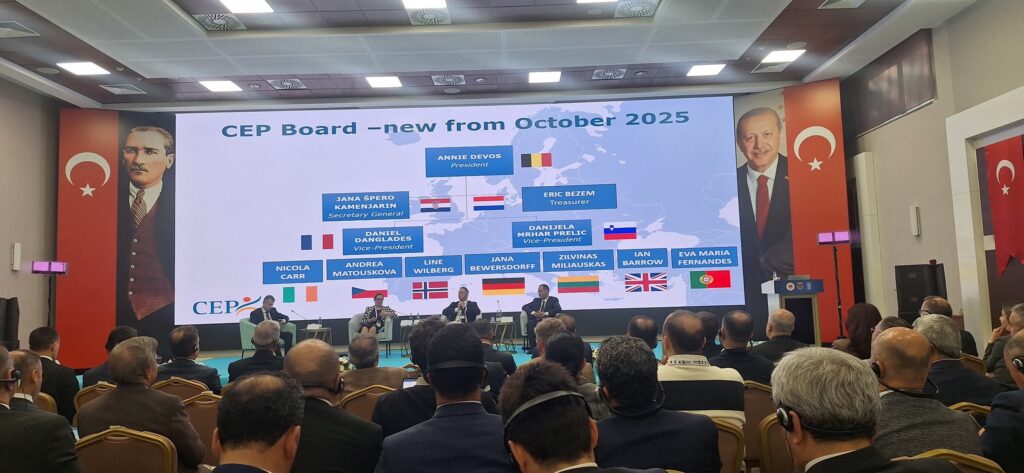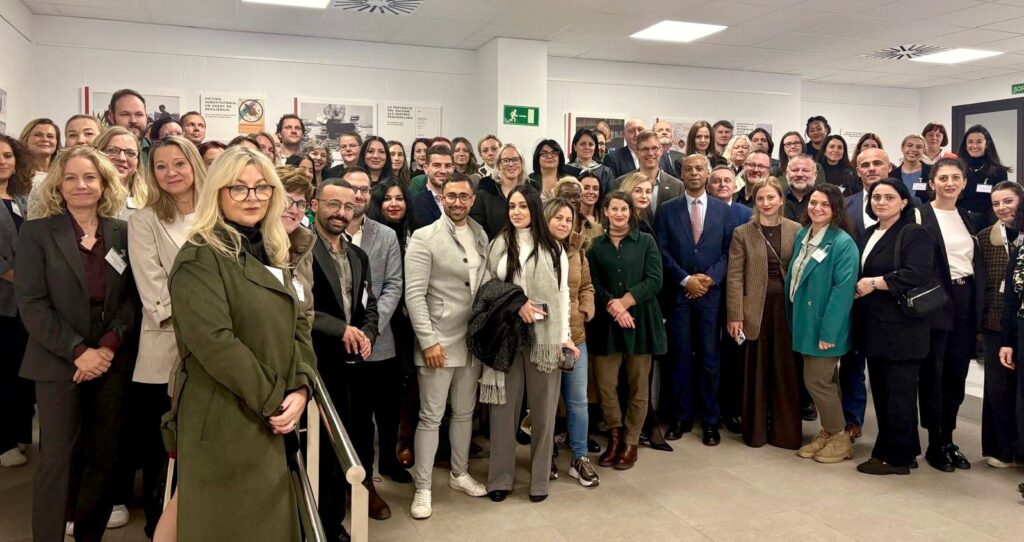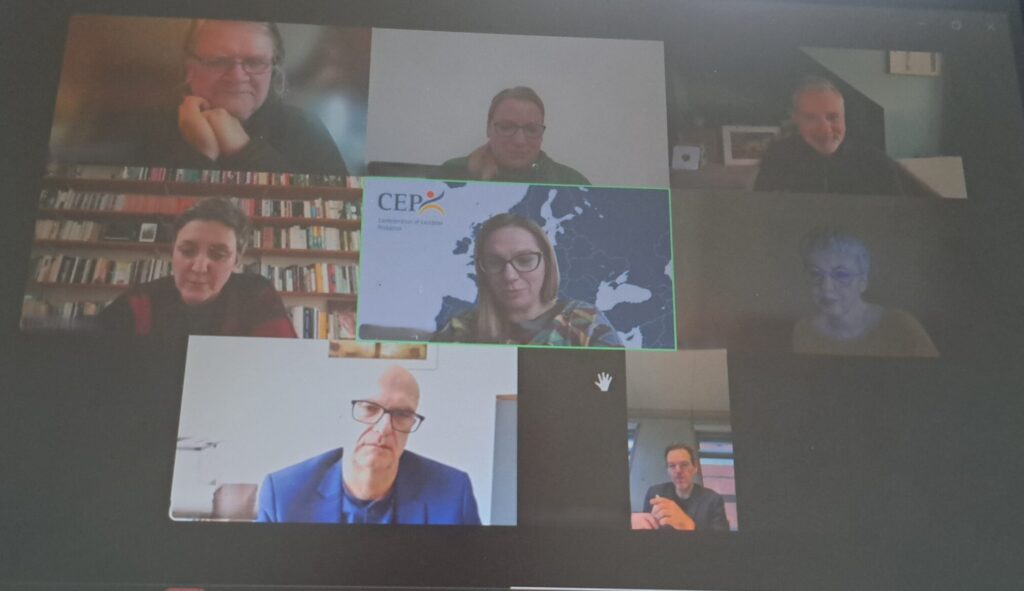Projects
Enhancing Cross-Border Mutual Legal Assistance and Recognition of Decisions in Countering Terrorism and Preventing Radicalisation in Prisons
The main objective of this ERA project proposal is to offer four training events that will promote the understanding and learning of various aspects of countering terrorism and radicalisation, with a particular focus on mutual legal assistance between EU Member States in relation to the spontaneous exchange of information, the mutual recognition of decisions between EU countries in relation to confiscation and freezing orders, as well as the prevention of radicalisation in detention and using alternatives to imprisonment.
The main objective of this ERA project proposal is to offer four training events that will promote the understanding and learning of various aspects of countering terrorism and radicalisation, with a particular focus on mutual legal assistance between EU Member States in relation to the spontaneous exchange of information, the mutual recognition of decisions between EU countries in relation to confiscation and freezing orders, as well as the prevention of radicalisation in detention and using alternatives to imprisonment.
These seminars will act as a platform to debate and assess the impact of these various issues in relation to countering terrorism and radicalisation, as well as offer the attending participants an update on the tools available to better identify and counter these issues and/or improve the prosecution of offenders or offer them a possible alternative to detention. In so doing, findings will be made and conclusions drawn, especially in relation on how to better exchange information across borders more effectively and speedily, in order to prevent terrorist activities and possible attacks, as well as on issues in relation to the sentencing of radicalised individuals and offering them an opportunity for reintegration into society in the process of being de-radicalised and offered a possible alternative to detention. Moreover, the need to improve and facilitate cross-border cooperation in countering all of the abovementioned issues in relation to terrorism and radicalised individuals will be stressed and highlighted throughout the series, as the crime in itself makes no halt before national borders, which will also act as a networking facilitator for all those in attendance and establish crosssector contacts, as well as an exchange of best practice.
Objectives:
- Raise awareness of issues surrounding cross-border cooperation, mutual legal assistance and recognition of decisions in countering terrorism, its financing and radicalisation in detention, as well as alternatives to imprisonment
- Improve application of relevant legal instruments (FDs 829, 909, 947, 577, 783, EAW) and fourth AML Directive) due to real-time training, including workshops where relevant
- Allow for an exchange of best practice and experiences in matters relating to counter-terrorism, exchange of information, freezing and confiscation of assets, countering radicalisation in prisons and alternatives to imprisonment
- Strengthen mutual trust and networking between judicial authorities active in the field
- Contribute to the discussion about a need for further action and a more coordinated and coherent approach to judicially respond to counter terrorism, its financing, radicalisation in prisons and alternatives to imprisonment
Activities
4 Seminars:
- Mutual legal assistance in countering terrorism and exchanging information; mutual recognition of decisions in relation to FDs 577 and 783; the fourth AML Directive and the use and functioning of ECRIS (EN & ES), Madrid, March 2017
- Prevention of radicalisation in detention: FDs 909, 829, 947 their implementation and proper use, the EAW and pre-trial detention in relation to apprehending and further radicalising individuals; the role of the judiciary in disengagement and de-radicalisation, de-radicalisation programmes in prisons and religious counselling (EN & DE), Vienna, September 2017
- Rehabilitation and alternative sanctions to detention of radicalised individuals: alternative probationary measures, reintegration into society, rehabilitation measures in relation to foreign fighters as part of the criminal justice response, rehabilitation programmes and supervision within the context of FDs 947 and 829, risk assessment of individuals, role of the judiciary in disengagement, rehabilitation and de-radicalisation (EN), Utrecht, March 2018
- Best practice and the way forward in relation to cross-border judicial cooperation in countering terrorism and preventing radicalisation in detention: summary of findings of last three seminars, focussing on and giving a deeper analysis of highlights of all of them, reviewing results and making conclusions about possible future training needs (EN & tbc), Trier, September 2018
Click here to visit the project page.
2016 – 2018
Partners: Centro de Estudios Jurídicos (CEJ), Spain, Studiecentrum Rechtspleging (SSR), The Netherlands
Associate Partners: European Judicial Training Network (EJTN), European Organisation of Prison and Correctional Services (EuroPris), Confederation of European Probation (CEP), European Forum for Restorative Justice (EFRJ), Ecole National de la Magistrature, France
Co-funded: European Commission Directorate-General for Justice and Consumers
Partner organisations

Related News
Check out the latest news and updates on this project’s focus area.

Probation in Europe, Probation outside Europe, Uncategorized
20th anniversary of Probation Service in Türkiye
08/12/2025
CEP had the privilege of participating in the Turkish Probation System 20th Year International Congress, marking the 20th anniversary of the Probation Service in Türkiye, held from 1–3 December 2025 at ATGV in Antalya.

CEP-Europris, Probation in Europe
Recap of CEP and EuroPris Meeting with Catalan Authorities
04/12/2025
On 3 December, on the occasion of the joint CEP and EuroPris Workshop on Transition from Prison to Probation held at the Centre for Legal Studies and Judicial Training (CEJFE) in Barcelona, representatives from both international organisations met with senior officials from the Catalan Ministry of Justice to present their current work, reflect on ongoing cooperation, and explore shared priorities for future collaboration.

CEP-Europris
Workshop on Transition from Prison to Probation: Continuity of Care and Control
03/12/2025
On 2–3 December 2025, 71 participants from 22 European countries and jurisdictions attended the Workshop on Transition from Prison to Probation: Continuity of Care and Control, jointly organized by CEP and EuroPris. The two-day workshop aimed to explore strategies for ensuring continuity of care and control during the transition from prison to probation.

Research
Recap: online Expert Group meeting on Research
02/12/2025
On Friday, 28 November 2025, the annual meeting of the Expert Group on Research took place online.

Domestic violence, Gender-based violence
New evaluation on whole family approach to domestic abuse
26/11/2025
Interventions Alliance has published a new evaluation of a Hub coordinated on behalf of police forces in the south of England, focused on tackling violence against women and children through a whole family approach. The Hub supports victims and perpetrators of domestic abuse and works across policing, health and social services.

Probation in Europe
New EU Judicial Training Strategy 2025-2030 adopted
26/11/2025
New updates from the European Commission highlight key priorities for judicial training in Europe, alongside new tools supporting transparency and access to data.
Subscribe to our bi-monthly email newsletter!
"*" indicates required fields
- Keep up to date with important probation developments and insights.

